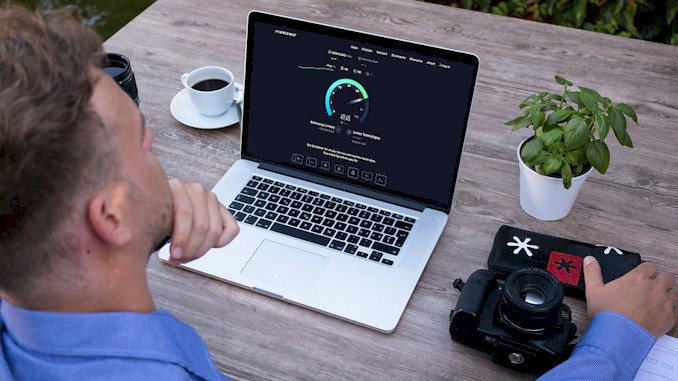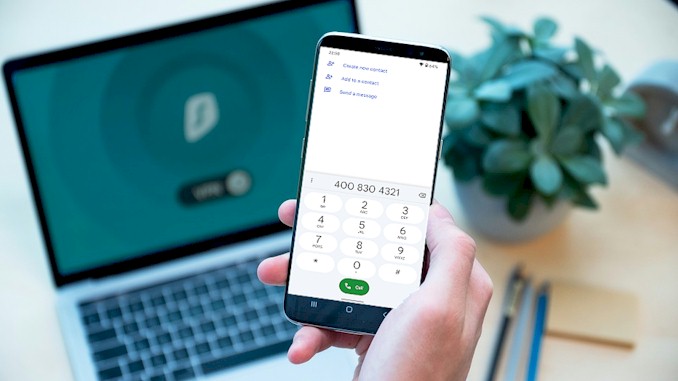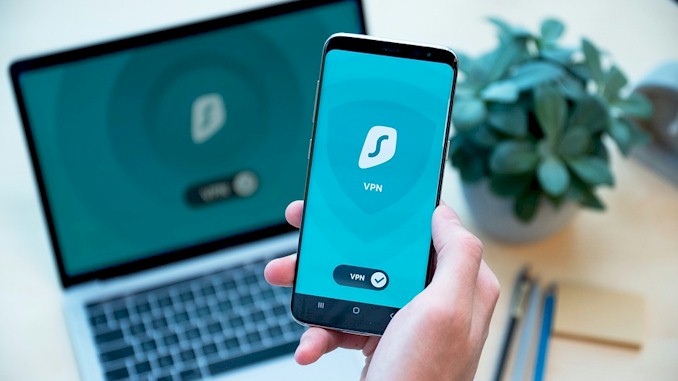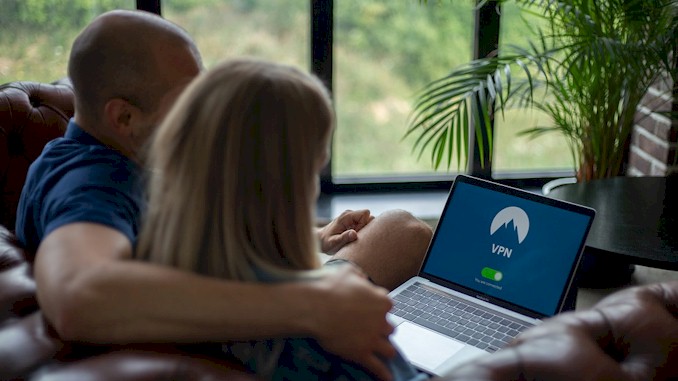Why Does VPN Slow Down My Connection?
I still remember when I bought ExpressVPN and began to use it. I tested the speed immediately with the expectation of seeing an exciting result due to the reputation ExpressVPN has in the industry. However, I was only surprised to see the decrease in speed. With frustration, I began to search for why it was like that. I have read many articles in my search result and joined the related forums to discuss with others who have similar experiences. The research journey took much of my time and effect. That is why I am writing this post, and I hope what I have learned will save you the same.
The VPN can slow down your internet speed, though it is a great way to protect your online privacy and security. The reasons why a VPN slows down your internet connection include encryption, the VPN server location, the status of the VPN server load, and the distance between you and the VPN server.
It is natural for the VPN to slow down your internet speed as the cost for what you want to get, such as encryption, anonymity, overcome geo-restriction and censorship. In the following paragraphs, I will delve deeper into each of the factors mentioned. There are many options you can take on to improve it if you have some sort of knowledge about this topic. And then you would be satisfied to have the VPN with you throughout the internet era. Read on to find out why I say that.
Factors Affecting VPN Speed Reduction
When you begin to use a VPN, you have to go through some actions. Start the VPN application on your device, go to the setting section of the application, and choose the protocol you decide to use when connecting to VPN, such as OpenVPN, Wireguard, IKEv2, Lightway, etc., Depending on which VPN service you use, pick a VPN server node you’d like to connect, and finally click the connect button to begin to connect to VPN.
That means you have put some extra effort and factors into the initial internet connection. All of them will have some influence on the internet connection and its speed. They are:
- encryption,
- the VPN server,
- the location of the server,
- the distance between your device and the VPN server,
- the protocol,
- and the infrastructure of the VPN servers.
Now let’s explore them in detail:
1.Encryption
The encryption of the VPN can affect the speed of your VPN connection. When you use a VPN, all of your internet traffic is encrypted, which means the VPN scrambles it in a way that makes it unreadable to anyone who might intercept it. This encryption process requires additional processing power, which can slow down your internet speed.
The level of encryption used by your VPN can also impact the speed of your connection. Stronger encryption methods such as AES-256, which is considered highly secure, require more processing power and may slow down your connection more than weaker encryption methods.
However, you will find that the actual impact would be a little in case you use a premium VPN like ExpressVPN or NordVPN. And
the impact of encryption on your VPN speed depends on several factors, such as your device’s processing power and your internet connection speed.
Anyway, you have some options on your hand to improve the speed of your VPN connection. You can try using a less secure encryption method or selecting a server that is closer to your location. You can also try upgrading your internet connection or using a VPN provider that uses optimized servers to reduce the impact of encryption on your speed.
Type of Encryption Used
Based on which protocol you use to connect to the VPN server, the major VPN providers use different types of encryptions to ensure a high level of security. That is very good news for you and all of us, especially after reading all the security risks and attack vectors in the reports. For example, if a user chooses to use OpenVPN, cipher, key, and authentication would be AES-256 cipher, RSA-4096 key, and SHA-512 HMAC authentication.
The following are some of the common encryption methods used by major VPN providers:
- ExpressVPN: ExpressVPN uses AES-256 encryption, which is considered highly secure. It also uses HMAC SHA-256 authentication and RSA-4096 handshake encryption.
- NordVPN: NordVPN uses AES-256 encryption with 2048-bit SSL/TLS keys. It also uses HMAC SHA-384 authentication and Perfect Forward Secrecy (PFS) to ensure that even if one session is compromised, the others remain secure.
- CyberGhost VPN: CyberGhost VPN uses AES-256 encryption with 4096-bit RSA keys for authentication. It also uses Perfect Forward Secrecy (PFS) and HMAC SHA-256 authentication.
- Surfshark: Surfshark uses AES-256-GCM encryption, which is considered highly secure. It also uses Perfect Forward Secrecy (PFS) and HMAC SHA-512 authentication.
- Private Internet Access (PIA): PIA uses AES-256 encryption with 4096-bit RSA keys for authentication. It also uses HMAC SHA-256 authentication and Perfect Forward Secrecy (PFS).
- ProtonVPN: ProtonVPN uses AES-256 encryption with 4096-bit RSA keys for authentication. It also uses HMAC SHA-384 authentication and Perfect Forward Secrecy (PFS).
It’s worth noting that these are just a few examples of the encryption methods used by popular VPN providers. Other providers may use different encryption methods or modify the protocols mentioned above. Additionally, some providers may offer multiple encryption options for users to choose from. If you’re unsure about the encryption method used by your VPN provider, you can check their website or contact their customer support team for more information.
Processor Speed of Device
Another factor that will affect speed is the processor speed of the user’s device. When you use a VPN, all of your internet traffic is encrypted and decrypted by your device before being transmitted over the VPN network. This encryption and decryption process requires additional processing power, which means that devices with slower processors may experience a decrease in speed when using a VPN.
The impact of processor speed on VPN performance can vary depending on several factors, such as the level of encryption used by the VPN and the type of internet activity being performed. For example, streaming video or downloading large files may require more processing power than simply browsing the web.
To ensure that your device’s processor speed doesn’t negatively impact your VPN performance, you can try the following:
- Choose a VPN provider that uses optimized servers: Some VPN providers use servers that are specifically designed to reduce the impact of encryption on your device’s processor. These servers are often referred to as “optimized servers” and can help improve the speed of your VPN connection.
- Use a less secure encryption method: While this isn’t always recommended, using a less secure encryption method can reduce the processing power required by your device and improve VPN performance. However, this also means that your internet traffic may be less secure.
- Upgrade your device: If your device’s processor is significantly older or slower, upgrading to a newer device with a faster processor may improve your VPN performance.
- Close unnecessary programs and applications: Closing unnecessary programs and applications that are running in the background can free up processing power and improve VPN performance.
Overall, the processor speed of your device is just one factor that can impact the speed of your VPN connection. It’s important to consider other factors, such as internet speed and server location, when trying to optimize VPN performance.
Strength of Encryption
The strength of encryption used by a VPN can significantly impact the speed of your internet connection. This is because stronger encryption requires more processing power to encrypt and decrypt your internet traffic, which can slow down your device and reduce your internet speed.
For example, a VPN that uses AES-256 encryption with Perfect Forward Secrecy (PFS) will provide a very high level of security but may also require more processing power and slow down your connection. In contrast, a VPN that uses AES-128 encryption without PFS may provide a lower level of security but may be faster as it requires less processing power.
There are several other factors that can impact the speed of your VPN connection, including the speed of your internet connection, the distance between your device and the VPN server, and the level of congestion on the VPN server. However, the strength of encryption used by your VPN is one of the most important factors when it comes to VPN speed.
To balance security and speed, some VPN providers offer a range of encryption options, allowing users to choose the level of encryption that best suits their needs. Additionally, some VPN providers use specialized servers that are optimized for speed, which can help to mitigate the impact of encryption on your internet speed.
Overall, the strength of encryption used by your VPN will impact your internet speed, but it’s important to find a balance between security and speed that works for your specific needs.
2. VPN Server
Now, let’s take a look at the VPN server factor. It’s a new player after you employ a VPN compared to when you don’t use a VPN. This new player brings some new elements that impact the internet connection:
Server Location
The location of the VPN server can significantly impact the speed of your internet connection. When you connect to a VPN server, your internet traffic is routed through that server before being transmitted to its final destination. The distance between your device and the VPN server can impact the speed and latency of your internet connection.
When you use a VPN, your internet traffic is encrypted and routed through a VPN server before reaching its final destination. This means that the location of the VPN server and the location of the website or service you’re accessing can impact the speed of your connection.
Here are some ways that the location of the VPN serve affect your internet speed:
- Distance between VPN server and destination: If the VPN server is located far away from the website or service you’re accessing, your internet traffic needs to travel a greater distance, which can result in slower speeds.
- Routing: The routing of your internet traffic can also impact the speed of your connection. If the VPN server you’re using routes your traffic through multiple locations before reaching its final destination, this can add latency and slow down your connection.
To ensure fast internet speeds, it’s important to choose a VPN server location that is close to the destination you’re accessing. For example, if you’re accessing a website or service located in the United States, choosing a VPN server located in the United States can result in faster speeds than using a VPN server located in Europe or Asia.
Physical Distance from Server
The physical distance between the user’s device and the VPN server can significantly impact the internet connection speed when using a VPN. When users connect to a VPN server, their internet traffic is encrypted and routed through the server before being transmitted to its final destination. Therefore, the distance that the encrypted traffic has to travel between the user’s device and the VPN server can impact the speed and latency of the connection.
Here are some ways that the physical distance between the user’s device and the VPN server can impact the speed of the connection:
- Latency: The time it takes for the encrypted traffic to travel from the user’s device to the VPN server and back is known as latency or ping time. The farther away the VPN server is from the user’s device, the higher the latency, which can result in slower internet speeds.
- Network congestion: The farther away the VPN server is, the more internet infrastructure the encrypted traffic needs to pass through, which can result in more network congestion. This can slow down the internet connection when using a VPN.
To ensure fast speeds, you’d better to choose a VPN server location that is geographically close to the user’s physical location.
The infrastructure of the VPN servers
The infrastructure of the VPN can also have an impact on the speed of the internet connection. The infrastructure of the VPN includes the servers, network, and other hardware and software components that make up the VPN service.
Here are some ways that the infrastructure of the VPN can impact the speed of the connection:
Server performance: The performance of the VPN servers can impact the speed of the connection. If the VPN servers are overloaded with traffic or are using outdated hardware or software, this can result in slower speeds.
- Network capacity: The capacity of the VPN network can also impact the speed of the connection. If the VPN network is overloaded with traffic or has limited bandwidth, this can result in slower speeds.
- Protocols and encryption: The protocols and encryption used by the VPN can also impact the speed of the connection. Some encryption methods require more processing power than others, which can result in slower speeds. Some VPN protocols are also faster than others, such as WireGuard, compared to OpenVPN.
- Location of servers: The location of the VPN servers can also impact the connection’s speed. If the VPN provider has servers located in areas with poor internet infrastructure or far away from the user’s location, this can result in slower speeds.
If you want faster speed, it’s best to choose a VPN provider with a robust infrastructure that includes high-performance servers, ample network capacity, and up-to-date hardware and software. It’s also important to choose a VPN provider with servers located in areas with good internet infrastructure and close to the user’s physical location.
Overall, the infrastructure of the VPN can impact the speed of the internet connection when using a VPN. The VPN provider with a robust infrastructure and servers located in areas with good internet infrastructure and close to your physical location is the best.
3. VPN Server Load
If you have used a PC with a CPU usage above 70%, you might have experienced that the PC becomes slow and choppy. This happens because the CPU is unable to handle all the instructions that are coming its way. The same thing happens with a VPN server when it is under heavy load. In such cases, the server’s performance drops sharply, and you may experience slow speeds.
Number of Users on Server
The number of users on a VPN server can have an impact on the internet speed experienced by each user:
- Server load: When there are a large number of users on a VPN server, the server’s resources may become overloaded, leading to slower internet speeds for each user. This is because the server has to process data requests from multiple users simultaneously, and if there are too many requests, the server may struggle to keep up.
- Bandwidth sharing: VPN servers typically have a finite amount of bandwidth available. When there are a large number of users on a VPN server, the available bandwidth is shared between all users. This can lead to slower internet speeds for each user, particularly if some users are consuming a large amount of bandwidth.
- Network congestion: When there are a large number of users on a VPN server, this can also lead to network congestion. Network congestion occurs when there is too much traffic on the network, causing data to be delayed or lost. This can result in slower internet speeds for each user.
Therefore, if you want decent speed, choose a VPN server with a low number of users and high-quality resources. Remember, always choose a VPN provider that has a good reputation for server performance and uptime, like ExpressVPN, NordVPN, or Surfshark.
Server Capacity
The capacity of a VPN server can impact the internet speed experienced by each user:
- Server resources: The capacity of a VPN server depends on the resources available to it, such as CPU, RAM, and storage. When a server is operating at or near its maximum capacity, it may struggle to keep up with data requests, leading to slower internet speeds for each user.
- Bandwidth availability: The capacity of a VPN server also depends on the amount of bandwidth available. When a server is at or near its maximum bandwidth capacity, it may struggle to keep up with the demands of all users, leading to slower internet speeds.
- Network infrastructure: The capacity of a VPN server can also be impacted by the quality of the network infrastructure it’s connected to. If the network infrastructure is outdated or unreliable, this can limit the capacity of the VPN server and lead to slower internet speeds.
Type of VPN Protocol
The type of VPN protocol can have an impact on the internet speed experienced by each user:
- Encryption level: Different VPN protocols use different encryption levels, and stronger encryption can slow down internet speeds. For example, protocols that use AES-256 encryption require more processing power than those that use AES-128 encryption, which can impact speed.
- Data overhead: Some VPN protocols have higher data overhead than others, which can also slow down internet speeds. Data overhead refers to the additional data that is sent along with user data to enable the VPN protocol to work. For example, some protocols may add headers or footers to each data packet, which can increase the amount of data that needs to be sent and received.
- Protocol efficiency: Some VPN protocols are more efficient than others when it comes to data transmission. For example, protocols that use UDP (User Datagram Protocol) tend to be faster than those that use TCP (Transmission Control Protocol) because they don’t have to wait for acknowledgement of data receipt.
Based on my experiences of using the VPN for more than ten years, I would say it’s best to try each protocol one by one, compare the speed testing results of them, and pick the one that best fits your need.
How to Improve VPN Speed?
Slow internet speeds can be frustrating, especially when you’re trying to browse the web or stream your favorite shows. There are several steps you can take to optimize your VPN speed and improve your overall online experience.
Choose a Server Close to Your Location
When selecting a VPN server, it’s important to consider the server’s location. Choosing a server that is close to your current location can help minimize the distance that your data needs to travel, resulting in faster internet speeds. By selecting a nearby server, you can also reduce the risk of network congestion, which can slow down your internet connection.
Use a High-Speed VPN Provider
Not all VPN providers offer the same internet speeds. Choosing a high-speed VPN provider that offers optimized protocols and high-speed servers can help to improve your internet speeds and reduce latency. By selecting a VPN provider that prioritizes speed, you can ensure that your internet connection remains fast and stable.
Upgrade Your Internet Plan
If you’re experiencing slow internet speeds even when you’re not using a VPN, it may be time to consider upgrading your internet plan. A faster internet connection can not only improve your VPN speed but also enhance your overall online experience. When choosing a plan, look for packages that offer higher download and upload speeds to maximize your internet performance.
Use a Wired Connection
Using a wired connection instead of a wireless one can also improve your VPN speed. Wireless connections are prone to interference and signal loss, which can result in slower internet speeds. By using a wired connection, you can reduce these issues and ensure that your internet connection is stable and fast.
By following these simple tips above, you can significantly improve your VPN speed and enjoy faster, smoother online experiences. Choosing a server close to your location, using a high-speed VPN provider, upgrading your internet plan, and using a wired connection can all help optimize your internet connection for the best possible performance. So, give these tips a try and enjoy a faster and more enjoyable online experience!
Related Questions
Q. Will a VPN slow down my internet speed?
A. Yes, using a VPN may slow down your internet speed due to encryption overhead, distance to VPN server, server load, and ISP throttling.
Q. How much does a VPN slow down your internet speed?
A. The amount of speed reduction depends on various factors such as the distance to VPN server, server load, and internet speed. However, on average, a VPN can reduce your internet speed by 10-30%.
Q. How can I test my VPN speed?
A. There are various online tools and websites that allow you to test your VPN speed. Some popular ones include speedtest.net, fast.com, and speedof.me.
Using a VPN may slow down your internet speed, but it is a small price to pay for the added security and privacy benefits that come with using a VPN. By choosing a server close to your location, using a high-speed VPN provider, upgrading your internet plan.







